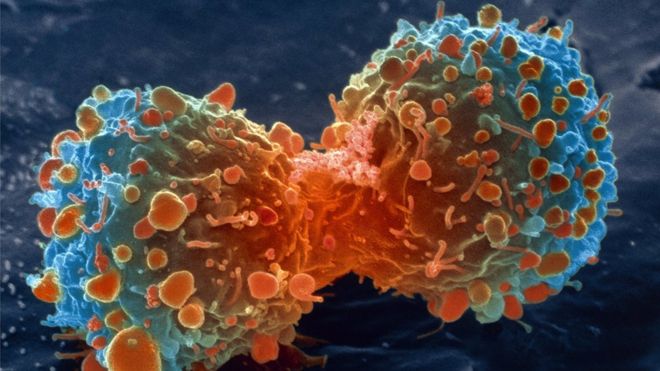Medical device and MedTech insights, news, tips and more
‘Handful of Changes’ Make Cancer
October 24, 2017

British scientists have worked out how many changes it takes to transform a healthy cell into a cancer.
 The team, at the Wellcome Trust Sanger Institute, showed the answer was a tiny handful, between one and 10 mutations depending on the type of tumour.
The team, at the Wellcome Trust Sanger Institute, showed the answer was a tiny handful, between one and 10 mutations depending on the type of tumour.
It has been one of the most hotly debated issues in cancer science for decades.
The findings, published in the journal Cell, could improve treatment for patients.
If you played spot the difference between a cancer and healthy tissue, you could find tens of thousands of differences – or mutations – in the DNA.
Some are driving the cancer’s growth, while others are just along for the ride. So which ones are important?
Root cause
The researchers analysed the DNA from 7,664 tumours to find “driver mutations” that allow a cell to be more selfish, aggressive and cancerous.
They showed it could take:
- just one mutation to drive thyroid and testicular cancers
- four mutations to make a breast or liver cancer
- 10 mutations to create a colorectal cancer.
Dr Peter Campbell, one of the researchers, told the BBC News website: “We’ve known about the genetic basis of cancer for many decades now, but how many mutations are responsible has been incredibly hotly debated.
“What we’ve been able to do in this study is really provide the first unbiased numbers.
“And it seems that of the thousands of mutations in a cancer genome, only a small handful are responsible for dictating the way the cell behaves, what makes it cancerous.”
Half the mutations identified were in sets of genetic instructions – or genes – that had never been implicated in cancer before.
Therapy
The long-term goal is to advance precision cancer treatment.
If doctors know which few mutations, out of thousands, were driving a patient’s cancer, it could allow drugs that specifically targeted that mutation to be used.
Drugs such as herceptin and Braf inhibitors are already used to attack specific mutations in tumours.
The researchers were able to pick out the mutations that were driving the growth of cancer by turning to Charles Darwin and evolutionary theory.
Read the Rest of the Story at the Source: ‘Handful of changes’ make cancer – BBC News
By James Gallagher
Health and science reporter, BBC News website
